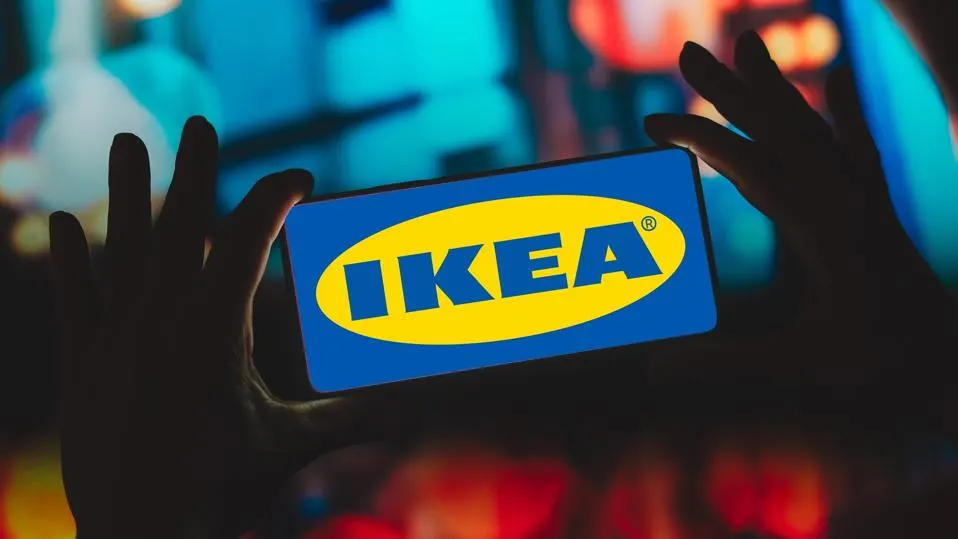What Is Artificial Intelligence (AI) in Business? 10 Practical Examples
2 July 2021
Artificial intelligence (AI) refers to the ability of machines to understand the world around them, learn and make decisions, in a similar way to the human brain. Thanks to AI, machines are getting smarter every day.
 in Business 10 Practical Examples.png)
Contrary to popular depictions of AI, this doesn’t mean that machines will become our evil overlords (not yet, anyway!). When you strip away the sci-fi predictions and “be afraid” hype, it’s clear that AI is making a very real, very positive contribution to the world – particularly when it comes to AI in business.
You’ll already be familiar with some of the ways in which organisations are harnessing AI:
- Smart assistants, including Siri and Alexa
- Customer service or helpdesk chatbots
- Facial recognition technology, like that used by Facebook
- Personalised recommendations on platforms such as Amazon and Netflix
In this article, I’m going to explore some other examples of AI in business – examples that you might not have come across before. In general, all of the following examples fall into two main categories:
- Delighting customers with smart products and services
- Improving business operations
Examples of smart, AI-enabled products and services
- Roomba robot vacuums. You know those cute little vacuum cleaners that look like a giant hockey puck? They use AI to scan the room, pinpoint obstacles and work out how much hoovering is needed based on the size of the room. They also learn and remember the most efficient routes around the room.
- Twitter uses AI to identify hate speech, fake news and illegal content. In one six-month period, the platform removed nearly 300,000 terrorist accounts that had been identified by AI.
- Likewise, Instagram is using AI to fight cyberbullying and take down offensive comments.
- Betterment robo-advisors. There are lots of fintech companies offering robo-advice these days, but Betterment are the biggest and one of the pioneers in the field. Robo-advisors are online financial advisors that use AI to deliver personalised financial advice in an accessible, cost-effective way. This financial revolution promises to open up financial planning to the masses.
- Nest smart thermostats. If you’ve ever railed at the cost of your energy bills, this product might be for you. The smart thermostat monitors activity in your home and begins to understand the occupants’ behaviour patterns. Then, based on what it knows about how you and your loved ones use the home, it dynamically adjusts the temperate to keep the home comfortable, without wasting energy.
Examples of smarter business operations
- Predictive maintenance is helping companies repair, replace or service parts and machinery at the optimum time – before it breaks down. Siemens AG, one of the biggest railway infrastructure providers in the world, is one example of this in action. The company uses IOT and AI technology to improve the reliability of trains, repair assets before they break down, and provide rail operators with uptime guarantees.
- KenSci’s risk prediction platform uses AI techniques to help identify fraudulent healthcare claims, which make healthcare more expensive for everyone. The system was able to identify more than $1 million in fraudulent claims from just one dataset.
- Dominos is trialling Starship Technology’s automated delivery robots to deliver pizzas in Germany. These little delivery vehicles, which have a top speed of 10 mph, are proving more cost-effective and efficient for short-distance deliveries around town compared to delivery trucks and cars. Just Eat has begun using the same technology to deliver takeaways in London.
- IBM’s Chef Watson tool uses AI to help chefs and restaurants develop recipes and suggest innovative flavour combinations.
- Burberry is using AI to combat counterfeit products and improve the customer experience. For the latter, the company’s reward and loyalty programmes capture customer data which is then analysed to provide a more personalised shopping experience for each customer.
These are just a few exciting examples of how businesses are harnessing AI to delight their customers and improve operations. No doubt, we’ll see many more examples and much wider application of AI in business over the coming years.
Taking a strategic approach to AI in business
Whether you want to use AI to delight your customers, improve your business operations, or both, it’s vital you take a strategic approach.
What do I mean by that? For one thing, I mean creating a dedicated AI strategy (separate to your data strategy) that sets out how you want to use AI and how you’ll put that plan into action. What’s more, applying AI in a strategic way means linking it to your company-wide strategy. In other words, what is the organisation trying to achieve and how can AI help deliver those strategic objectives?
When you take a strategic approach like this, you can focus your AI efforts in the areas that will deliver the greatest value for the business. If you need help with any aspect of AI in your business then get in touch. I’ve worked with some of the world’s most prominent companies to create their AI strategies, and I’m here to help your business approach AI in a strategic way.
Where to go from here
If you would like to know more about AI in business, check out my articles on:
Related Articles
Sex And Intimacy In The Generative AI Era
Sex and technology have long been intertwined – millions of us use dating apps to find partners, and some of the earliest commercial online activity revolved around pornography.[...]
Generative AI Sucks: Meta’s Chief AI Scientist Calls For A Shift To Objective-Driven AI
In a landscape where generative AI is hailed as the frontier of technological innovation, Yann LeCun, Chief AI Scientist at Meta, presents a contrarian viewpoint that challenges the status quo.[...]
Instacart Harnesses Generative AI To Revolutionize Grocery Delivery Experience
Grocery delivery and pickup service Instacart is not shy about adopting new technologies. So, it makes sense that the company has embraced generative AI across the business.[...]
Responsible AI: Why Privacy Is An Essential Element
Today, people often talk about “responsible” AI use, but what do they really mean?[...]
The Amazing Ways IKEA Is Using Generative AI
Global furniture retailer IKEA has long been at the forefront of tech-driven retail innovation.[...]
Generative AI Is Coming To Your Home Appliances
Across all industries, organizations are rapidly embracing generative AI. Among them, makers of home appliances like fridges and ovens.[...]
Sign up to Stay in Touch!
Bernard Marr is a world-renowned futurist, influencer and thought leader in the fields of business and technology, with a passion for using technology for the good of humanity.
He is a best-selling author of over 20 books, writes a regular column for Forbes and advises and coaches many of the world’s best-known organisations.
He has a combined following of 4 million people across his social media channels and newsletters and was ranked by LinkedIn as one of the top 5 business influencers in the world.
Bernard’s latest book is ‘Generative AI in Practice’.










Social Media